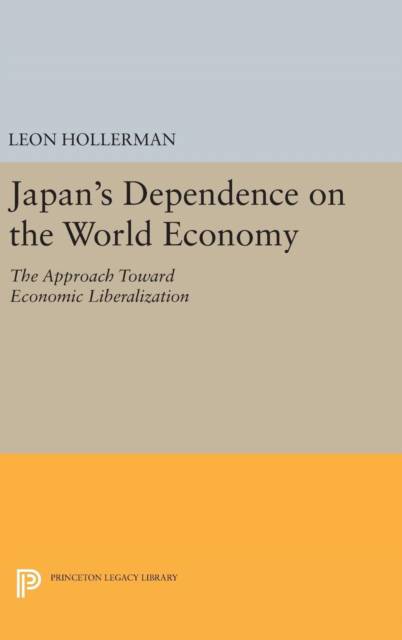
- Retrait gratuit dans votre magasin Club
- 7.000.000 titres dans notre catalogue
- Payer en toute sécurité
- Toujours un magasin près de chez vous
- Retrait gratuit dans votre magasin Club
- 7.000.0000 titres dans notre catalogue
- Payer en toute sécurité
- Toujours un magasin près de chez vous
Description
In order to affirm its status as an "advanced industrial nation," Japan has formally adopted a sweeping program of liberalization in its own trade and payments. In practice, however, this program is subject to various limitations; to a considerable extent the apparently smooth implementation of the liberalization program may be attributed to the system of informal "administrative guidance" by which conflicts have been adjusted and symptoms of economic instability partly suppressed. Professor Hellerman analyzes the interrelations between changes in the structure of Japan's industrial production and the structure of its foreign trade. Applying the theory of industrial organization at the international level, he proceeds from the examination of structure to an evaluation of performance and public policy in Japan's external economic affairs.
Originally published in 1967. The Princeton Legacy Library uses the latest print-on-demand technology to again make available previously out-of-print books from the distinguished backlist of Princeton University Press. These editions preserve the original texts of these important books while presenting them in durable paperback and hardcover editions. The goal of the Princeton Legacy Library is to vastly increase access to the rich scholarly heritage found in the thousands of books published by Princeton University Press since its founding in 1905.Spécifications
Parties prenantes
- Auteur(s) :
- Editeur:
Contenu
- Nombre de pages :
- 308
- Langue:
- Anglais
- Collection :
- Tome:
- n° 2248
Caractéristiques
- EAN:
- 9780691649849
- Date de parution :
- 19-04-16
- Format:
- Livre relié
- Format numérique:
- Genaaid
- Dimensions :
- 156 mm x 234 mm
- Poids :
- 607 g

Les avis
Nous publions uniquement les avis qui respectent les conditions requises. Consultez nos conditions pour les avis.






